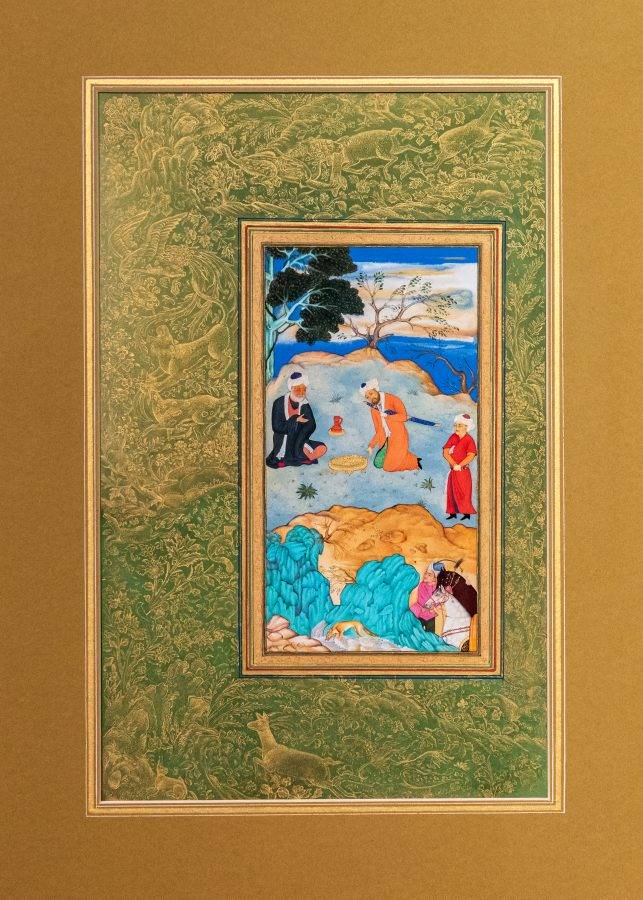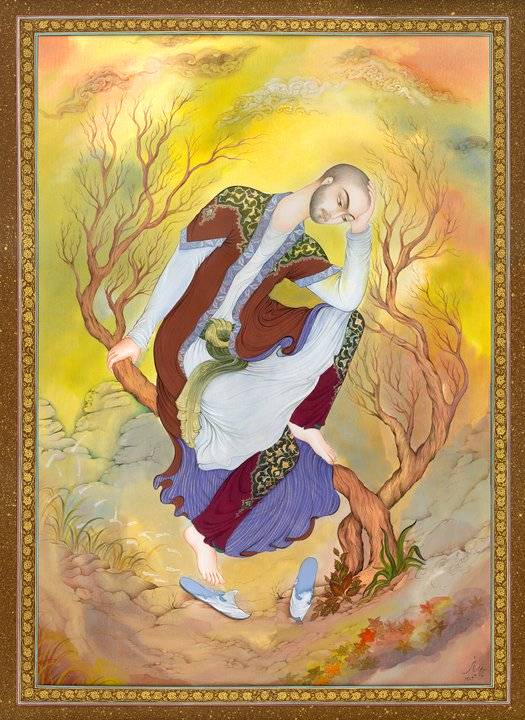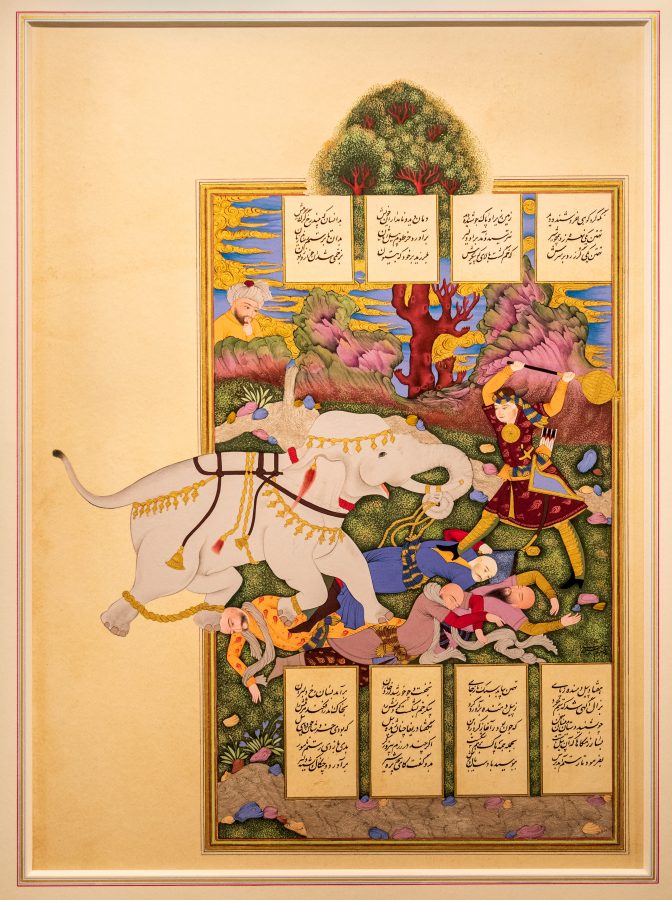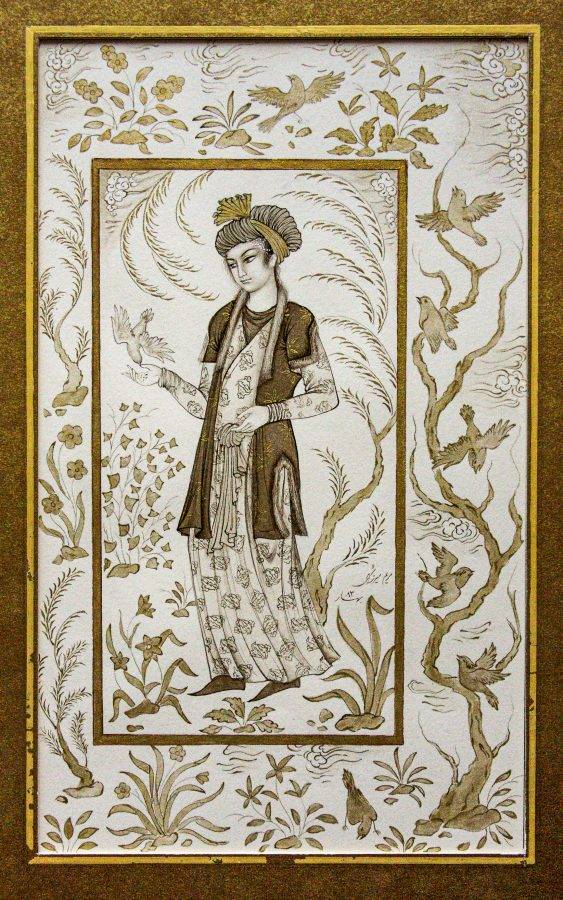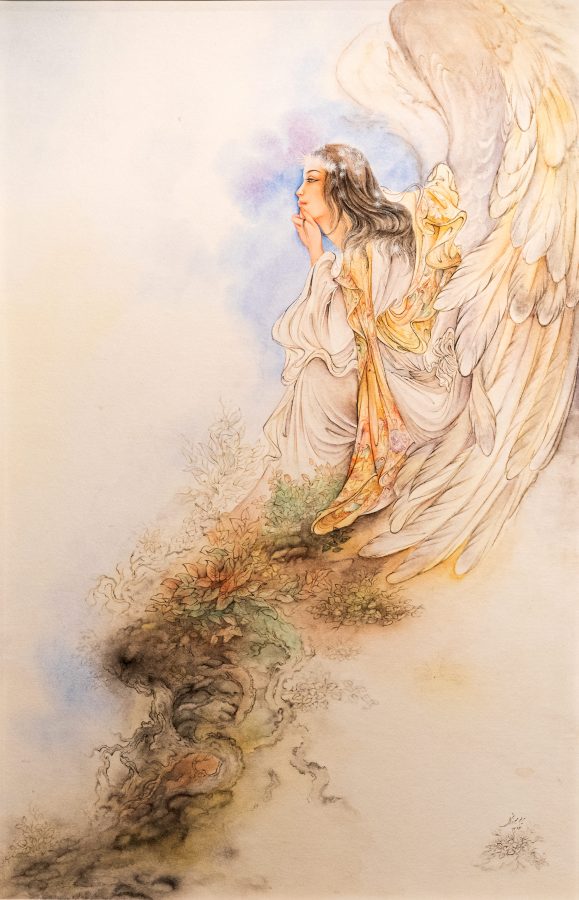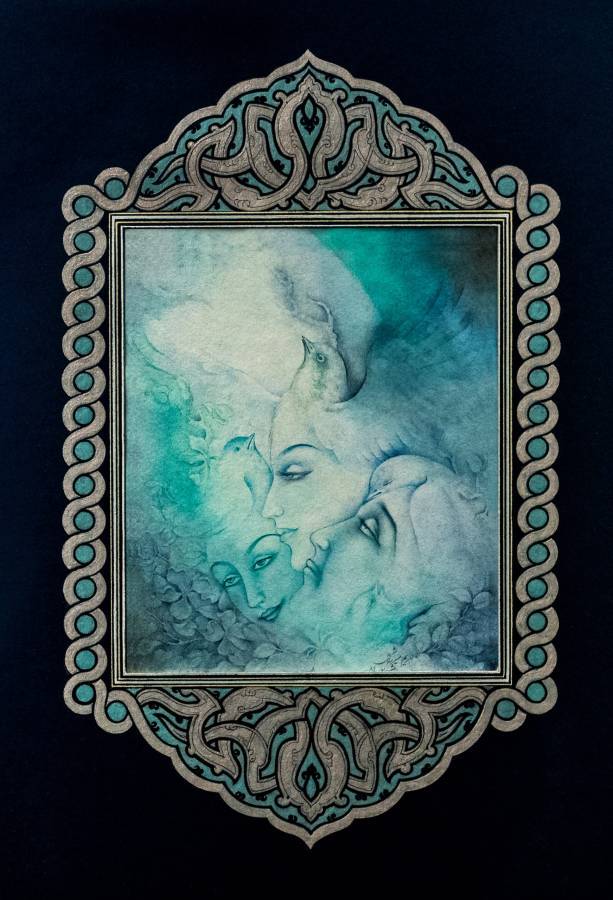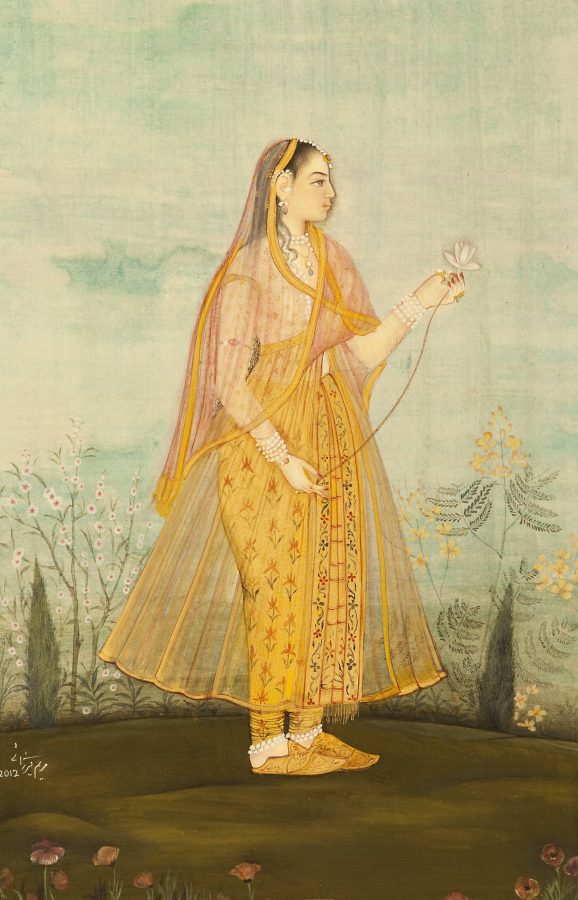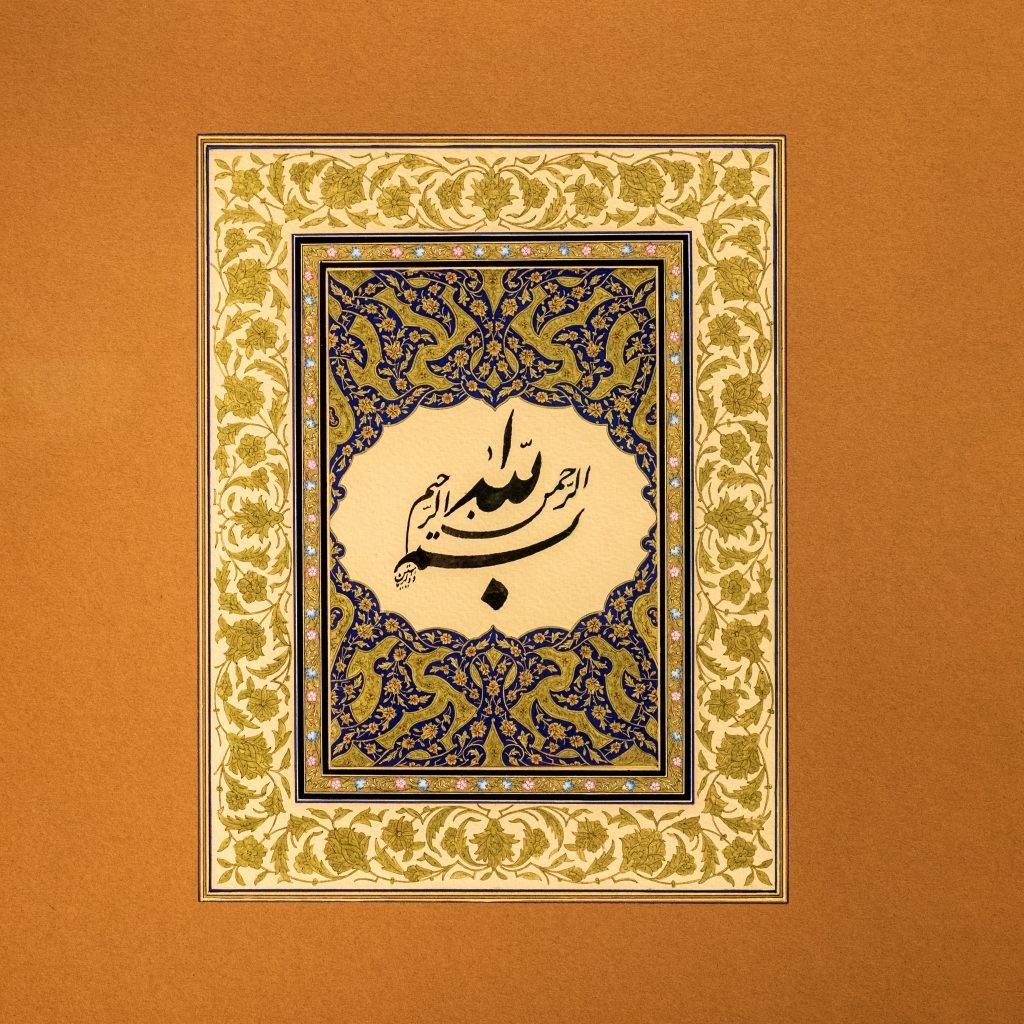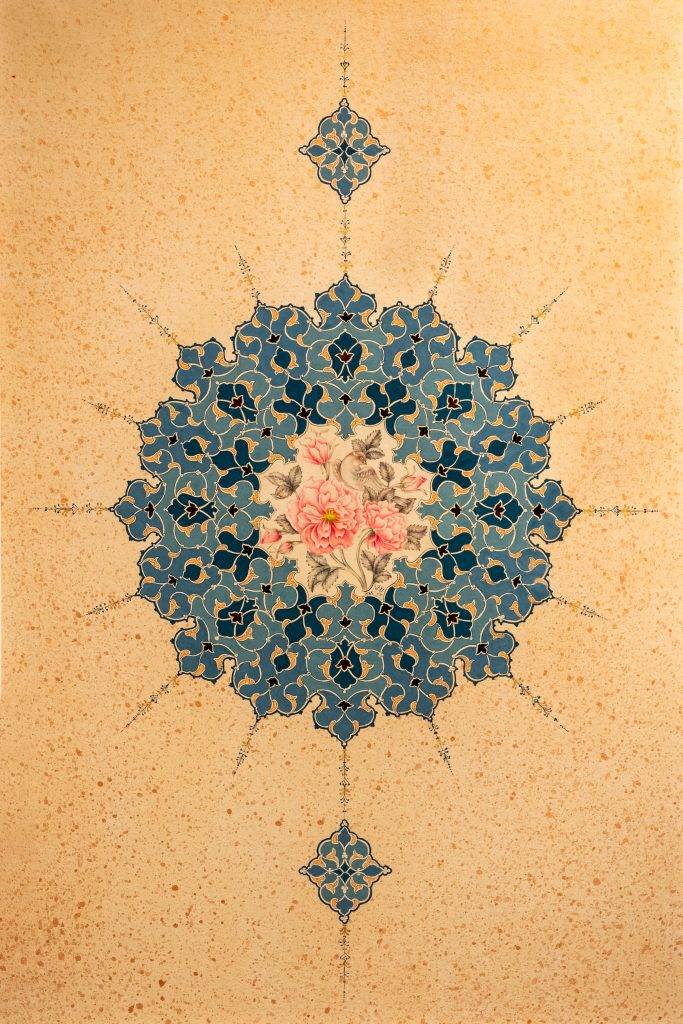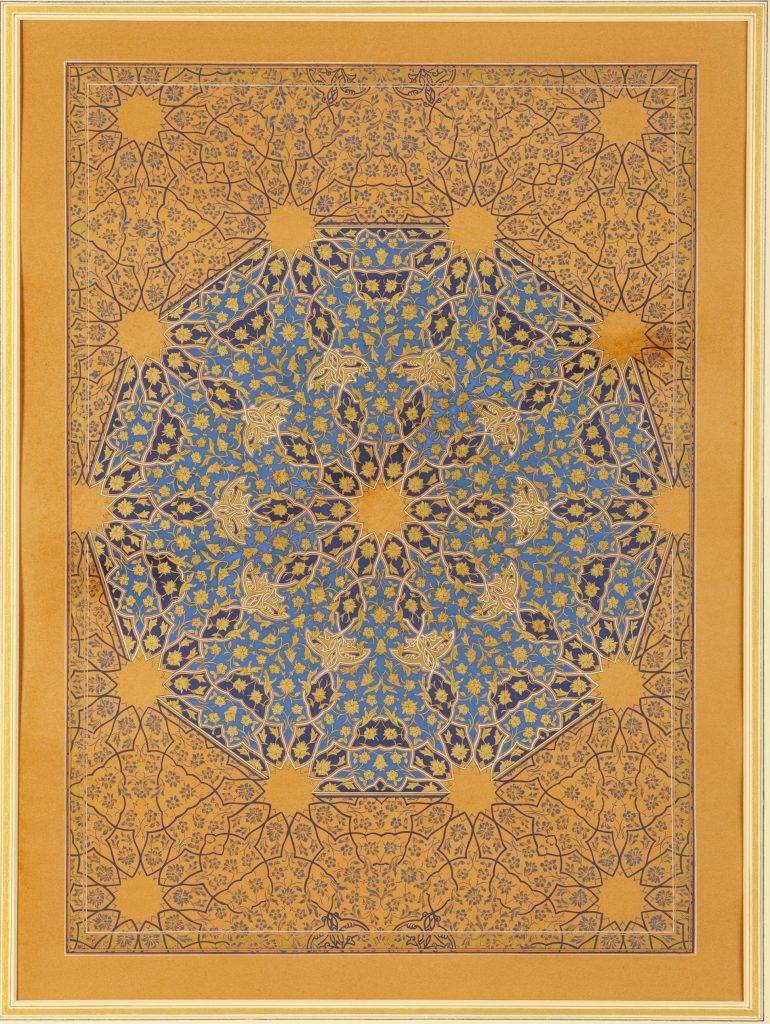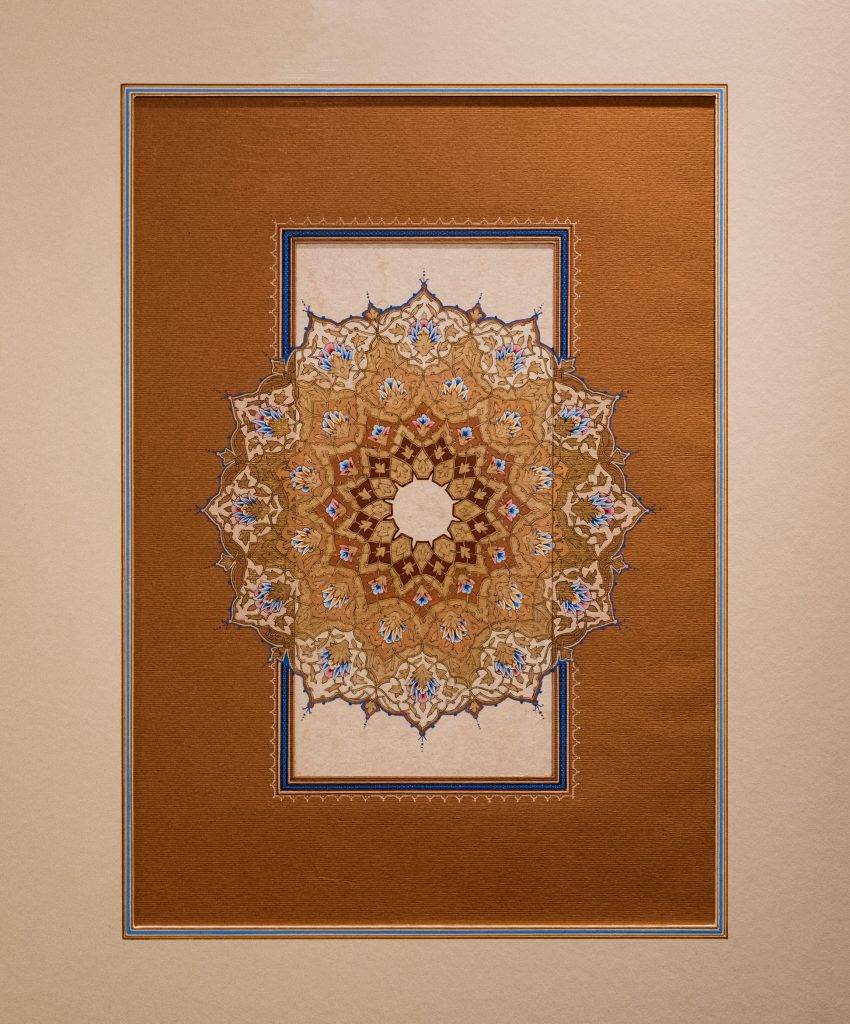After the Arab conquest in 641, Persia became part of the Islamic world, and its visual arts developed according to Islamic rules.
One of these – the ban on three-dimensional portrayal of living things – led to an immediate decline in Persian sculpture and forced fine art painting to become more ornamental and adopt the flat style of Byzantine art.
While the purely sacred arts such as mosque architecture and calligraphy can be said to relate to ‘sacerdotal initiation’ and ‘the Great Mysteries’, the miniature and other courtly arts belong to ‘knightly and royal initiation’ and thus the ‘Lesser Mysteries’. This however, in no way subjugates it to a minor art. One must also remember the connection between Sufism, the mystical aspect of Islam. The Sufis cultivated miniature painting which as a courtly art was no less than other courtly arts, such as music. The very subjects chosen testify to this theory, most often being epic scenes of battles of Persian heroes, real or legendary, tales of moral and spiritual significance and illustration of mystical Sufi literature.
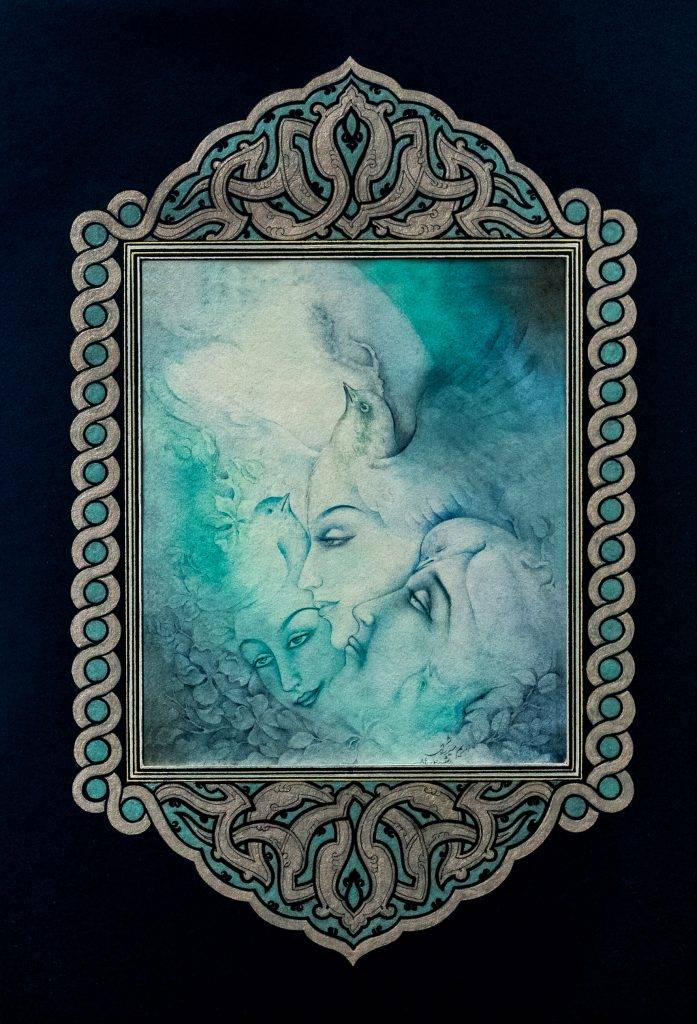
Advice from a Saint
Year: 2012
This is a copy of a piece by the famous artist Behzad. It portrays the story of one of the kings of Persia who visited a saint for advice.
Making a copy of this piece is challenging due to the tasheer style surrounding the miniature. It was done in gold, a technique which has become far rarer in this day and age among newer artists.
Battle of Rustam
Year: 2005
This is a copy of one of the famous manuscripts of the Shahnameh called “Baysenqur Mirza”, named after its artist. The Shahnameh is a renowned poem by Ferdowsi in which he presented the history of Persian kingdoms in poetic form. The hero of the Shahnameh is the brave Rustam.
Here, an elephant attacks a group of people, and Rustam rushes in to help.
One of the main functions of the artist in illustrating manuscripts was to depict what was written in the text to help the reader better understand it.
Farewell
gouache and Persian ink
Original size: 33cm by 34cm
Year: 2013
In this piece, the artist depicts her last visit with her late father. There are two birds, one flying and one sitting and looking at him, representing the last goodbye. This two are inside a circle. Philosophically speaking, the circle is the symbol of God which holds each creation and which symbolizes that none can escape from the divine decree. In this image, there are three different styles of tasheer.
Freedom
Original size: 35cm by 48cm
Year: 2005
This miniature is about three groups of people. The first group of people is in a society with freedom, which they use as a gift from God for everyone. This group is represented as a woman with a bird taking flight from her head. The second group has the same freedom, but they do not use it; this group is shown on the left side of the painting in the form of a woman with a bird sitting on her head. The third group is shown on the right-hand side, in the form of a woman’s head with a dead bird on it. This latter group is a society which lacks freedom; under the woman’s face is a small bird shouting for freedom. Freedom is a natural right; if any government deprives people of this right, sooner or later the society will take it back.
Maryam
Original size: 40cm by 40cm
Year: 2011
In this painting, Maryam depicts the challenges she faced after moving to the UK. Confronted with many difficulties, she felt she could find no way to escape her situation, so she decided not to see or hear as a coping mechanism. The shamseh represents God; here, she is saying that some difficulties come from God, and that a person sometimes needs to just be patient and wait them out.

